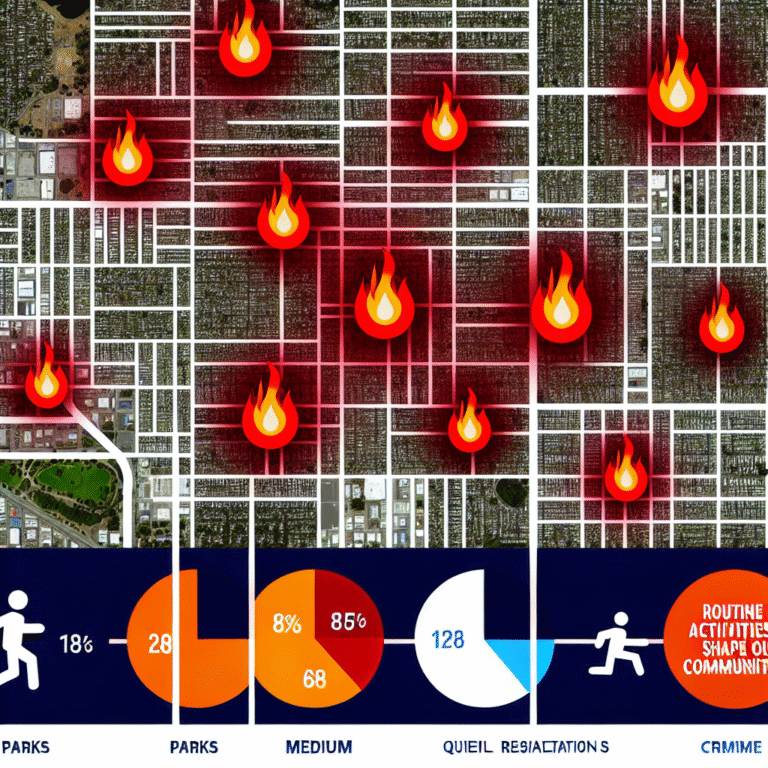
Introduction
In a world that often overlooks the complex realities of trauma, the concept of transitioning "From Victim to Survivor" emerges as a powerful narrative that not only defies the odds but also empowers individuals to reclaim their lives. At the forefront of this transformation is victimology research, a field dedicated to understanding the experiences of victims and offering pathways to healing and empowerment. This article will dive deep into the transformative potential of victimology research, case studies demonstrating its effectiveness, and actionable insights for those on their journey from victimhood to survivorship.
Understanding Victimology: A Foundation for Change
Victimology is a subfield of criminology that focuses on the study of victims, their experiences, and their rights. By exploring the social, psychological, and legal aspects of victimization, victimology offers invaluable insights that can aid in the recovery process.
The Importance of Victim-Centric Research
Victim-centric research is essential in fostering a deeper understanding of the challenges faced by those who have experienced trauma. By focusing on the victim rather than the offender, researchers can identify patterns, best practices, and effective interventions. This perspective is crucial in shaping policies and programs aimed at supporting victims.
Case Study 1: The Power of Support Networks
Background: In a comprehensive study conducted in 2019, researchers investigated the role of support networks for survivors of domestic violence.
Findings: The study revealed that victims who engaged with support groups reported significantly higher levels of emotional resilience and empowerment. Those who participated in discussions about their experiences felt validated and less isolated.
Analysis
This case study underscores the importance of community in the journey "From Victim to Survivor." By engaging with others who share similar experiences, survivors can draw strength and encouragement. This illustrates how victimology research, by emphasizing support systems, can lead to practical solutions for recovery.
Transitioning from Victimhood: Steps to Empowerment
Recognition and Validation
The first step in the journey to empowerment is acknowledging the trauma experienced by victims. Validating their feelings is critical to fostering an environment where they can begin to heal. Mental health professionals and support systems need to acknowledge the pain and suffering of victims rather than minimizing it.
Education and Awareness
Education plays a pivotal role in changing narratives surrounding victimhood. Informational workshops and resource centers can equip victims with knowledge about their rights, legal options, and available support services.
Case Study 2: Educating Survivors in Higher Education
Background: A 2020 initiative aimed to educate college students about sexual assault and victim rights through workshops and seminars.
Findings: Participants reported increased awareness of their rights and resources available to them. Many expressed a newfound sense of empowerment and readiness to speak out against their experiences.
Analysis
This case study highlights the essential role of education in shifting the narrative "From Victim to Survivor." By providing survivors with the tools and knowledge to understand their situation, educational programs can significantly empower individuals to take action.
The Role of Technology in Victimology
In today’s digital age, technology plays an increasingly vital role in victimology research and advocacy. Online platforms provide opportunities for victims to share their stories, find supportive communities, and access resources.
Telehealth Services
Telehealth services have emerged as a valuable resource for victims seeking therapy and counseling. They offer privacy, convenience, and accessibility, allowing survivors to connect with mental health professionals from the comfort of their own homes.
Case Study 3: Digital Support Networks
Background: A study published in 2021 explored the impact of online support networks for survivors of sexual assault.
Findings: The study concluded that online communities significantly aided in reducing feelings of isolation and shame among participants. Many survivors reported an increase in self-efficacy and hopefulness.
Analysis
The findings from this case study illustrate how technology can complement traditional support systems, further empowering survivors on their journey "From Victim to Survivor." Online resources can be particularly beneficial for those unable or unwilling to seek face-to-face support.
Building Resilience through Empowerment
Resilience is a key factor in the transformation from victim to survivor. It is not a characteristic that individuals possess inherently but rather a quality that can be nurtured and developed through various means.
Workshops and Self-Defense Training
Many organizations have adopted self-defense courses as a means of empowering survivors. Such programs not only improve physical safety but also enhance participants’ mental fortitude and self-esteem.
Table: Benefits of Self-Defense Training for Survivors
| Benefit | Description |
|---|---|
| Increased Confidence | Helps participants feel more secure in their surroundings. |
| Improved Mental Health | Physical activity releases endorphins that alleviate stress. |
| Empowerment | Participants learn to assert themselves and set boundaries. |
Case Study 4: Self-Defense Workshops
Background: A community program offered self-defense workshops specifically for survivors of assault.
Findings: Participants reported heightened confidence levels and a greater sense of control over their lives. Many expressed that the skills learned extended beyond physical self-defense, improving their mental resilience.
Analysis
This case study further exemplifies how empowerment strategies can support the transition "From Victim to Survivor." By learning skills that promote safety and confidence, survivors can reclaim their agency.
The Importance of Advocacy
Advocacy is another critical component in the journey from victim to survivor. By raising awareness and fighting for victims’ rights, advocates foster systemic change that supports recovery.
Policy Changes Through Victimology Research
Victimology research informs policymakers, ensuring that legislation reflects the needs and experiences of victims. From improving reporting processes to enhancing support services, advocacy rooted in research is vital for meaningful change.
Case Study 5: Legislative Advocacy for Victims’ Rights
Background: A non-profit organization focused on lobbying for victim-friendly legislation based on findings from victimology research.
Findings: Their efforts led to significant changes in state laws that improved support mechanisms for victims.
Analysis
Through victimology research and advocacy, this case study illustrates how systemic changes can enable and empower survivors, effectively helping them transition "From Victim to Survivor."
Conclusion
The journey "From Victim to Survivor" is neither linear nor simple, but victimology research plays a crucial role in empowering individuals to reclaim their lives. Through community support, education, technology, resilience-building, and advocacy, we can create an environment where survivors thrive rather than merely survive.
As we continue to learn from ongoing research and case studies, we must inspire hope and encourage actionable change. Every survivor has the potential to become not just a survivor but a catalyst for change in their own right.
FAQs Section
1. What is victimology?
Victimology is the study of victims, focusing on their experiences and the impact of crime on their lives, with the goal of understanding and improving victim support systems.
2. How does victimology research empower individuals?
It provides insights into victims’ needs, informs policy changes, and develops effective support programs, ultimately fostering resilience and growth.
3. What are common barriers to recovery for victims?
Barriers include stigma, lack of access to resources, emotional trauma, and sometimes, the societal narrative that victimizes individuals further.
4. How can community support help transition victims to survivors?
Support systems provide validation, understanding, and practical resources that enhance emotional and mental well-being, fostering empowerment.
5. What role does education play in empowering victims?
Education equips victims with knowledge about their rights and available resources, enabling informed decision-making and advocating for themselves effectively.
Final Thoughts
The path "From Victim to Survivor" is illuminated by knowledge, connection, and advocacy. Victimology research not only sheds light on the devastating impacts of crime but also offers a roadmap towards healing and empowerment. Let us commit to being part of this transformative journey, fostering environments where survivors thrive and empowering change.















